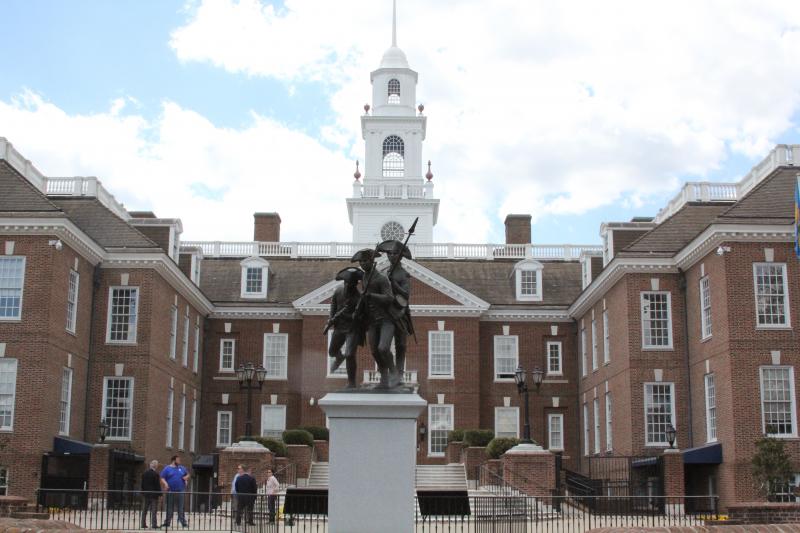A bill to separate Delaware’s corporate tax write-offs from the federal government moved out of committee Nov. 7, and is ready for action when the General Assembly gathers for an extraordinary session Thursday, Nov. 13, to address a potential budget shortfall.
House Bill 255 changes Delaware tax code from following federal tax code by decoupling from corporate tax write-offs allowed under the Trump Administration’s One Big Beautiful Bill Act.
OBBBA allows corporations to deduct the full cost of research and experimental expenses going back to 2022, along with certain property acquisitions and depreciation since January 2025.
Secretary of Finance Michael Smith said Delaware has been a rolling conformity state in relation to federal tax code, but provisions in the OBBBA that passed last summer will cause a $400 million decrease in Delaware’s revenue over the next three years.
“HB 255 proposes to decouple from retroactivity provisions going back to tax year 2022, and to permanently decouple from bonus depreciation provisions for tax year 2025 and forward,” he said.
Smith said expenses and deductions will still be allowed, he said, but it will go back to rules in place before the OBBBA. Typically, expenses and depreciation are spread out over a few years in a process called amortization.
“While rolling conformity with the federal tax code often offers many advantages in terms of simplicity and efficiency of tax filing and processing, many states decouple when the impacts are significant and create [volatility] in state tax policy,” Price said, adding the legislature will have to again act in its 2026 session on decoupling from federal tax code, or it will recouple.
For small business in Delaware, Price said Delaware offers expensing that allows $2.5 million assets placed in service can be fully expensed.
Several speakers representing small businesses and farmers opposed the changes, saying immediate write-offs can help businesses stay afloat.
“For farmers, these provisions aren’t just tax benefits, they’re truly lifelines,” said Sydnie Grossnickel of the Delaware Farm Bureau. “Agriculture is a capital intensive industry. The ability to deduct the full cost of equipment in the year of purchase helps farmers maintain a cash flow, reinvest it in their operations and stay competitive in a very volatile market.”
House Minority Leader Rep. Tim Dukes, R-Laurel, mentioned a fact sheet passed out by the Finance Department outlying a $223 million revenue decrease for Fiscal Year 2026, and asked how those numbers were determined.
Price said the revenue number is based on the federal government’s tax loss, and the decrease in Delaware’s revenue is taken from that.
“The expectation is that it’s an estimate based on the federal information … and our portion of that, which is relatively small,” Smith said.
David Roose, director of research and tax policy for the Department of Finance, said the revenue loss would occur at one time or another over time.
“The federal bill accelerated them all to the next several years, and there will be positives in the out years for them and for us if we do not decouple,” he said. “But with the decoupling, we are essentially maintaining the current law and deferring the revenue losses until the future.”
Melissa Steele is a staff writer covering the state Legislature, government and police. Her newspaper career spans more than 30 years and includes working for the Delaware State News, Burlington County Times, The News Journal, Dover Post and Milford Beacon before coming to the Cape Gazette in 2012. Her work has received numerous awards, most notably a Pulitzer Prize-adjudicated investigative piece, and a runner-up for the MDDC James S. Keat Freedom of Information Award.























































